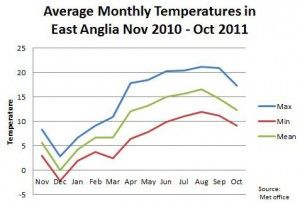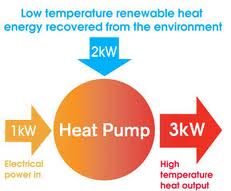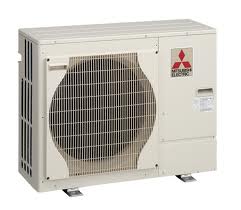At this time, the cost of living is getting higher and higher, to be able to reduce our fuel bills is a must, by fitting an air source heat pump we will help you reduce those bills and in the process reduce your carbon emissions. Even in the UK fitting an air source heat pumps can be an effective way of heating our homes and contributing to the temperature of the hot water we use.

“So how does it work?” Even cold air is full of energy and using an air source heat pump to extract that energy to provide the freely available heat in the ambient air which will provide efficient heating and hot water at air temperatures as low as -25°C. Because the source of heat – the air – is abundantly available all around us, air source heat pumps have the advantage of low installation costs and minimal space requirements, while we have relatively mild winter temperatures in the UK it means excellent levels of efficiency and performance are achieved throughout the year.
Air source heat pumps work by:
Taking air from around the air source heat pump, they extract heat from the air outside your home, using an evaporator coil. This looks like the big fans on air conditioner units. The performance of heat pumps is rated as a Co-efficient of Performance (CoP).

This measures how many units of heat are generated per unit of electricity used to drive the heat pump. For example CoP3 indicates that the system will give three units of heat energy for each unit of electricity used. A good performing system should give a CoP of 3 or more.
A down side of using a heat pump to heat water it does so to a lower temperature than traditional boilers. As a result they are most suitable for extremely well insulated houses with underfloor heating. It is possible to use a heat pump with radiators, but to get the same level of heat you will need larger radiators. Many older buildings are not energy-efficient enough to use underfloor heating or low temperature radiators.
A problem with using a heat pump is that they don’t tend to heat water hot enough for washing and bathing. As you heat the water to a hotter temperature the more electricity you use, and the more electricity it will need to run which in turn will mean higher running costs. A heat pump can pre-heat water, and then you can boost it to the necessary temperature. a number of heat pumps come with an integrated immersion heater.
The benefits of the use of outside air as a heat source
- Always available and inexhaustible source of heat
- Ideal for new build or retro fit applications, especially where space is limited
- No requirement for the cost and land area of ground collectors
- Can be utilised all year round between +35°C and -25°C
- Can be used for heating, cooling, domestic hot water and swimming pools
Compared with central Europe where air source heat pumps are already popular the UK has a comparatively moderate winter climate. The average winter temperature in the UK is around 5°C, this means that the seasonal co-efficient of performance comparable with ground source heat pumps is achievable, without the additional cost of expensive ground loop systems having to be installed.
Air source heat pumps:

Can be installed either out doors or in some instances if it is not desirable for the heat pump to be installed in the garden. Indoor air source heat pumps offer a practical alternative and can be installed for example in a garage, basement or utility room. The heat pump will need to be connected to the outside air via air ducts.
Installing an air source heat pump currently will require planning permission it is always best to check with the local planning office in your area. It is expected that they will become permitted development as soon as standards and safeguards have been established to deal with noise and vibration that they produce.
If you are living in a listed building or in a conservation area, you should always check with your council. The most up-to-date advice on planning is available on the government’s planning portal.
Should you be thinking of fitting an air source heat pump all good Norwich Plumbers will be able to advise on this, if you currently don’t have a plumber that you regularly use you can find one though the Institute of Plumbers or via Norfolk trading standards Trusted Trader Scheme which TSM Plumbing is a member. Remember to check that the plumber you let into your home is qualified and Insured to carry out the work you have requested.
I hope this advice will be of help to you stay, please stay warm this winter and should you have any questions please feel free to contact me.
